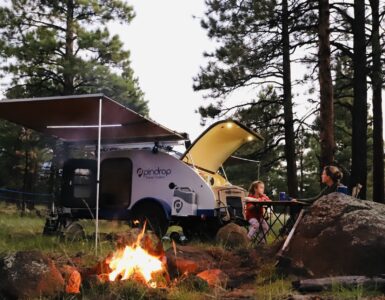If you have a fireplace, you might have put it to use during the recent cold snap. And if that fireplace is equipped with natural gas, you had access to a clean-burning, affordable alternative to wood, and without the mess. It’s also a great option on those no-burn days, when burning wood hurts our air quality.
Your home’s heating system and water heater might be gas equipped, too, and if you’re a home chef, you appreciate natural gas’ reliable, even heat source for your range and oven.
Businesses, like homeowners, also count on natural gas. It powers a variety of sectors, from our manufacturers, to health care providers, to agribusiness, to our lodging and tourism destinations, and much more.
Natural gas is just one source in Arizona’s overall energy portfolio. In fact, Arizona’s affordable, reliable, and diversified energy mix has been as important to the state’s economic growth and prosperity as our tax, regulatory, and education environments. It’s a resource essential to the country and Arizona’s economy.
But you wouldn’t know it by the actions of some cities around the country. More than two dozen cities nationwide have banned natural gas equipment in new buildings or have passed resolutions encouraging developers to go all-electric. These anti-natural-gas measures are popping up in the Bay Area, Boston suburbs, and big cities like Seattle. The elimination of the use of natural gas is one of the goals of the Green New Deal.
It’s a disturbing trend. But thanks to Arizona House Speaker Rusty Bowers and Senate President Karen Fann, it’s one that won’t come to Arizona.
They’ve each introduced legislation in their respective chambers that would prevent Arizona cities from denying a building permit based on the applicant’s utility provider. Further, if a utility provider is already serving an area, a city couldn’t ban that provider’s continued operations.
Energy policy is of statewide concern. Local level go-it-alone policies undermine the entire state’s competitive standing.
Opponents of natural gas choice say their position combats hydraulic fracturing, or fracking—one of the techniques for extracting natural gas—which they claim is a contributor to global climate change. An issue of this scope is better addressed at a legislative or, even better, congressional or international level than it is at a city council.
Natural gas opponents are pursuing a policy that places them far outside the mainstream of Arizona and the more than 1 million customers served by the state’s two largest natural gas utilities.
A poll of more than 1,000 natural gas customers conducted in late 2019 found that 92% of respondents statewide prefer having the choice of using natural gas in their home, and 82% of respondents were strongly opposed to natural gas being eliminated from their homes.
The Arizona Chamber of Commerce and Industry has made passage of this legislation to preserve energy diversity one of our top priorities for 2020. We’re proud to be part of a broad coalition of the business community, manufacturing sector, economic development groups, and utilities urging adoption of the bills. When our organization makes campaign endorsements later this year, legislators’ votes on these bills will figure prominently in our decision-making process.
Our coalition supporting energy options also includes groups representing economically struggling constituencies and those on fixed incomes. After all, if natural gas is no longer an option, then customers are put at real risk for higher energy bills, socking already price-sensitive Arizonans right in the wallet.
When the House version of the bill was considered by the Natural Resources, Energy and Water Committee, a legislator argued that adoption of the legislation is premature, is based on hypothetical arguments, and that the likelihood of Arizona following the same path as cities in California is unlikely.
Thanks to the work of Speaker Bowers and President Fann, we can be certain—not just hopeful—that Arizona won’t adopt California’s energy strategy.
















Add comment